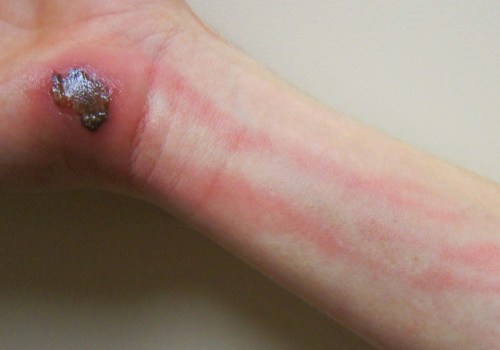Minor bleeding, which may require another surgical procedure, or bleeding significant enough to require a transfusion. Abnormal scarring due to broken skin. Separation of the surgical wound, which sometimes requires additional procedures. Numbness and tingling from nerve damage, which may be permanent.
Hematoma is a risk in almost all surgeries. Treatment sometimes includes additional operations to drain the blood if the accumulation of blood is large or is growing rapidly. This may require another procedure in the operating room and sometimes additional anesthesia. As with any surgery, some blood loss is expected.
However, uncontrolled blood loss can lead to a decrease in blood pressure with life-threatening results. Blood loss can occur while on the operating table, but also internally, after surgery. Although postoperative care includes measures to reduce the risk of infection, it is still one of the most common complications of plastic surgery. For example, infections occur in 1.1 to 2.5 percent of people who undergo breast augmentation.
Cellulitis from skin infection can occur after surgery. In some cases, infections can be internal and severe, and require intravenous (IV) antibiotics. The potential for nerve damage is present in many different types of surgical procedures. Numbness and tingling are common after plastic surgery and may be signs of nerve damage.
In most cases, nerve damage is temporary, but in some cases it may be permanent. Most women experience a change in sensitivity after breast augmentation surgery, and 15 percent experience permanent changes in nipple sensation. Hypertrophic scarring, for example, is an abnormally red and thick raised scar. Along with smooth and hard keloid scars, it occurs in 1.0 to 3.7 percent of tummy tucks.
General anesthesia can sometimes lead to complications. These include lung infections, strokes, heart attacks, and death. Knowledge of anesthesia, or waking up in the middle of surgery, is very rare, but also possible. For many patients, successful plastic surgery can lead to increased self-esteem and confidence.
Imagine a woman, who as a young teenager was mocked by her Dumbo ears, and finally stopped socializing until she was finally able to have her ears surgically repaired. Imagine a woman, who as a young teenager was mocked by her ox teeth smile, and finally stopped smiling until she was finally able to have her smile removed surgically. Extreme blood loss is an indication that something is wrong during surgery. A large amount of blood loss can cause organ failure or even death.
Blood buildup (hematoma) under the skin that causes swelling and pressure is the most common complication of facelift surgery. Bruising usually occurs after 24 hours of surgery. Nerve injury can affect the nerves that control muscles. Temporary paralysis in certain muscles will cause an incompatible facial expression.
Cosmetic Procedures Up 4% for 30-Year-Old Women, and 30% of All Liposuction Recipients Are 19-34 Years Old, American Society for Aesthetic Plastic Surgery Reports. In a recent study, Sarwer, also an associate professor of psychology at the Center for Human Appearance at the University of Pennsylvania School of Medicine, found that a year after undergoing cosmetic surgery, 87 percent of patients reported satisfaction after surgery, including improvements in their body image general and altered body characteristics. They considered that, in the process of making a careful decision, a person's thoughts about cosmetic surgery may change, but that, if a person has thought enough when deciding, he would be able to cope better with possible side effects. A sufficient consideration period and patient education before selective cosmetic surgery would minimize patient complaints and expand the basis of safe cosmetic surgery.
In addition to research, psychologists may also find clinical roles to help cosmetic surgery patients, such as helping plastic surgeons perform such assessments. Participants said that there were cases where people did not think they would experience any side effects, as it was believed that the likelihood of side effects due to cosmetic surgery was low. Patients may never be fully prepared for the mental and emotional costs of cosmetic surgery, says Joseph Hullett, psychiatrist and senior medical director of OptumHealth. The number of cosmetic procedures increased by 44 percent from 2003 to 2004, according to the American Society for Aesthetic Plastic Surgery.
Almost 30 years ago, many mental health professionals considered patients requesting cosmetic surgery to have psychiatric problems, but many studies since then suggest that those seeking cosmetic surgery have few pathological differences from those who do not undergo surgery, Sarwer says. Ten participants stated that they were satisfied with their appearance and did not feel the need to undergo cosmetic surgery. The results of this study could be used as reference material by surgeons to ensure safer cosmetic surgeries. Participants said that it would be necessary to research and review all relevant information, including side effects associated with cosmetic procedures.
If you feel very strong negative emotions towards your physical appearance, it is strongly recommended that you consult a doctor or psychologist about body dysmorphic disorder before seeking a solution with surgery. While the perceptions of people or society remain the same, I think women will undergo plastic surgery despite side effects to keep up with beauty standards. . .







